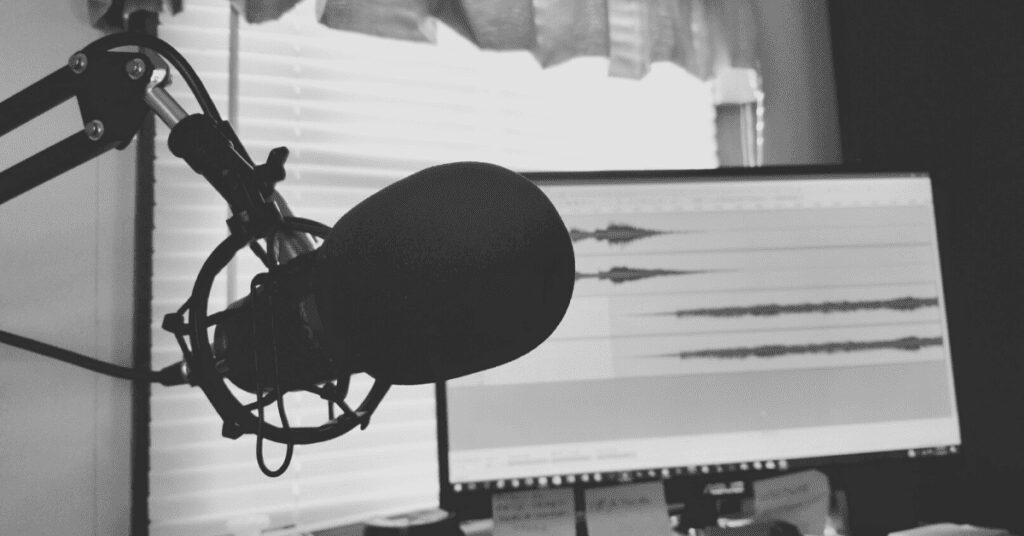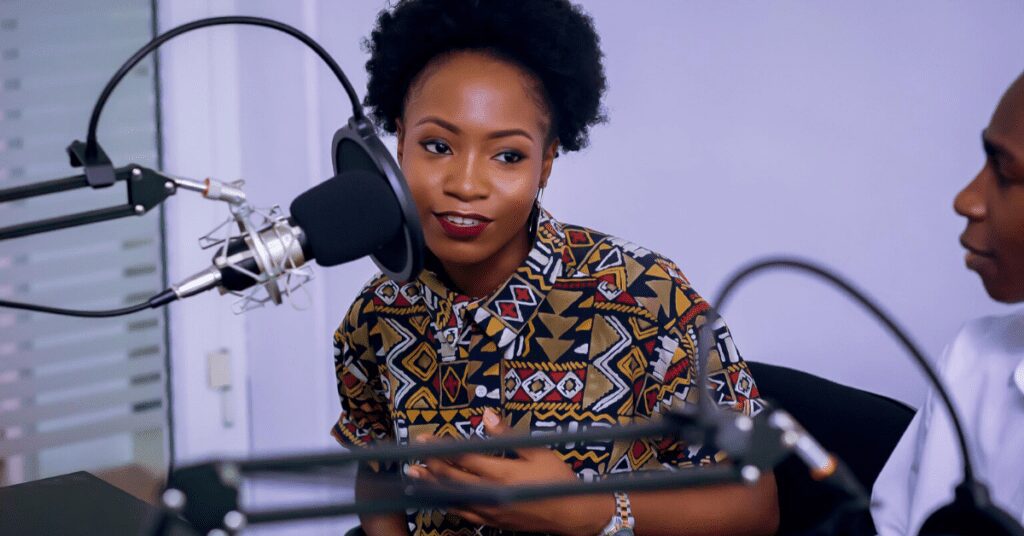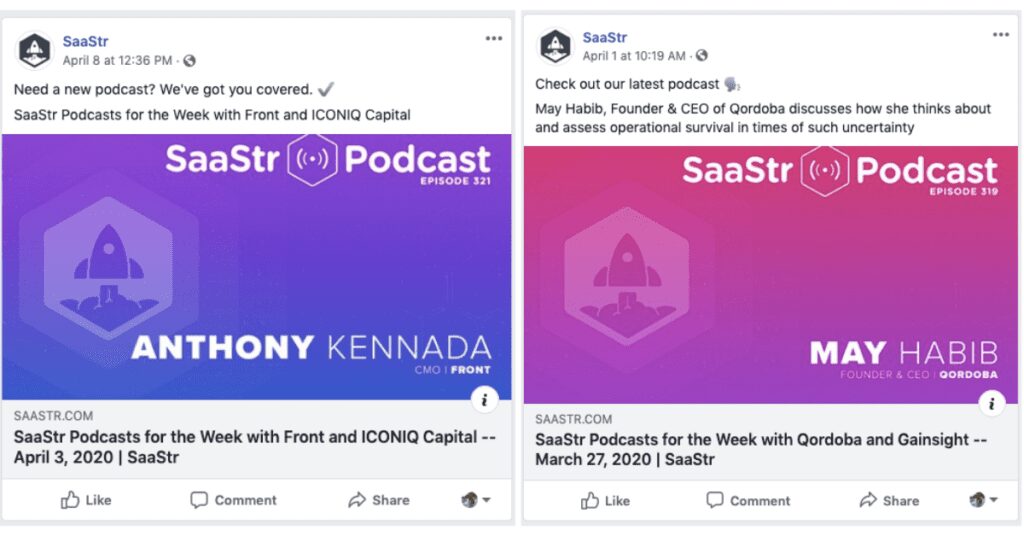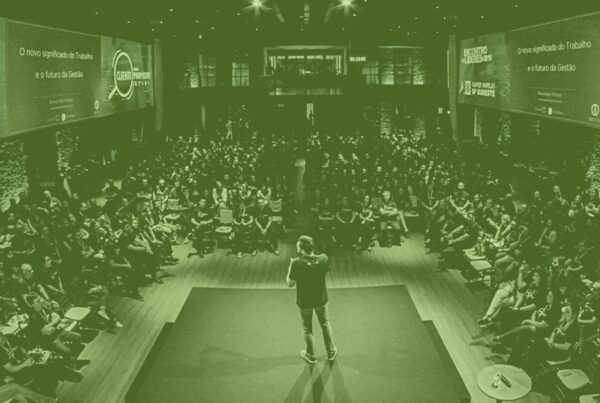The events industry has been hit hard. Events need to consider new business models and revenue streams to keep themselves diversified and stable. Virtual events are one solution to the problem, but sponsors are rarely willing to pay the same rates for virtual events as they do for in-person events. So you need new revenue streams and new opportunities for your sponsors! A great solution? Exploring the potential of podcasting as a new revenue stream for events!
You can create a podcast that features your audience, speakers, and sponsors as a new way to sell sponsorship slots and stay relevant.
Never produced a podcast before? Don’t worry. Because in this post, we will give you an entire framework for how to do just that. We break down each step of creating a podcast along the way so that you can use podcasting as a new revenue stream for events and offer even more value to your audience.
Why Planners Should Consider Podcasting as a Revenue Stream For Events
There are a number of reasons events should consider creating a podcast including:
- It’s a new revenue stream. Podcasting can be a new place to give value to your sponsors, year-round.
- You already have a built-in audience from your live event.
- It is a proven model (think of podcasts from events like SaaStr, MicroConf, and TalentBoard).
- Podcasting is a double-whammy because it combines content AND networking.
- It keeps your community of attendees and sponsors engaged year-round.
- It’s easy to do.
Now, that last bullet may feel like a lie. But we’re going to dive into the nuts and bolts of what it takes to create a podcast. You don’t have to reinvent the wheel – follow our process, we’ve already figured it out for you and know the potential of podcasting as a new revenue stream for events!
How to Start an Event Podcast
Planning
Brainstorm a name. Keep it clear and simple. You want people to be able to search for and find it easily. Perhaps using the same name as your event series or something that has to do with your industry would suffice.
Come up with a concept for the show. Is there a “theme” or “focus” of the show that you want to take? This should align with your conference.
Keep it simple. Don’t overthink this. The concept you start with doesn’t have to be a permanent commitment – you can always evolve over time depending on what your audience responds to or what shifts your industry takes.
In our experience, conversations make for the easiest type of podcasts. Interview your audience, speakers, or sponsors. Not only does this make for interesting content, but it also boosts your networking and relationships.
Set your intention for scheduling. Are you going to do a “season” of 10-12 episodes? Or will this become a weekly thing you run forever? There’s no right or wrong answer here, just different methods for going about it. Pick a schedule that works best for your event and run with it!
Find some backing music. Use a site like Pond5.com to find a backing music track to fit your show and audience. Don’t put too much time into this, it’s easy to fall into a trap since there are endless options. Just find something that isn’t too distracting and that fits your taste. Again, you can always change this as the production evolves.
Create show artwork. Hire a designer or use a site like Fiverr to create an eye-catching-but-not-overly-complicated design. Be sure it fits the size and resolution regulations of popular podcast syndication sites – the last thing you want is a grainy, or too-small image popping up in search results.
Practice recording. Set up a Zoom account and practice recording audio. Do a test run with a team member before going live with an interviewee.
Again, with most of this first stage of planning the primary piece of advice we could give is DON’T OVERTHINK THIS. Podcasts, like events, change and evolve over time. The point is to get started, experiment, see what works, and move forward from there.
Seek Out Sponsors
If you want to dive into podcasting as a revenue stream for events, we recommend that you go to some of your sponsors and offer them the ability to sponsor the first 5-10 episodes. This helps you cover all of your podcast production costs and turns this into a revenue opportunity immediately. Sell this just like you would sponsorship of a live event. Create a simple rate card or one-pager that shows the opportunity.
You can sell sponsorship to:
- 30-second intro on-air sponsorship slot.
- 30-second outro on-air sponsorship slot.
- Sponsorship promotion in email blasts.
- Sponsor mentions in all social posts relating to the episode(s).
- Some podcasts also insert sponsor segments halfway through the interview when they know the listener is engaged.
Scheduling Guests
This part often worries new podcasters but it is easier than you think! At least 50% of the people you ask will probably say ‘yes’ to being on your podcast. Again, podcasting is great networking! Your guests are able to build their relationships, grow their audience, and more firmly establish themselves in their niche by being a guest on your show. So how do you do it?
Reach out and ask “Can I interview you?” and add-in social proof. That’s it. See? Simple, right? We use a script like the following to reach out to our guests, feel free to copy and update as needed for your podcast:
Initial Invitation:
Subject: Can I interview you?
Hi ______,
{{Personalize your intro with something you saw about them or their platform online.}}
Recently, I launched a podcast called ______ where I am interviewing CEOs and leaders in the {{industry}}.
Past guests of the show have included {{Name drop initial guests if they are credible}}.
Would you be interested in being a guest on the show? Just reply and I can send over more details on next steps.
2 week follow up if you don’t hear back:
Hi ___,
Just circling back around on this. Let me know if you would be interested in appearing as a guest on our podcast.
Then, use a tool like Calendly to make scheduling and booking easy and simple for both parties.
How to Prepare for an Interview
The best interviews are based on curiosity. If you are learning interesting things during the interview, your audience will as well. Research the individual online for 15-30 minutes before each call to refresh your knowledge of their background and experience.
Come up with a list of questions or topic points that you want to ask this individual about, or specific ideas you see in their online content that would be worth discussing as it relates to the theme of your podcast. You can find more information about conducting a great podcast interview here.
How to Hold the Interview
Don’t forget to hit record! Then just have a conversation. Go where your curiosity takes you and just learn what you can from this person. The questions you have will likely run the same course as the questions your audience will have.
As we said previously, conversations make the best podcasts. If you or your guest(s) are too scripted, your audience will be able to hear that in the audio and it won’t sound natural or be pleasant to listen to. Record intros and outros after the interview is recorded to keep things simple and organized.
An Alternative Approach to Guests: Use Live or Virtual Event Audio Recordings
Don’t have time to handle interviews? That’s ok. Simply repurpose your live event or virtual event audio recordings of presentations into podcast episodes. This helps you leverage the content you already have and put it into other mediums that helps you deliver more value to your sponsors and your audience.
This takes little to no work beyond recording intros, outros, and sponsor segments. Repurposing presentation audio might even be a good way to augment your interview episodes as well.
Recording Intros, Outros and Sponsor Segments
When you hold an interview, you want to focus that interview time on the guest. So don’t waste time doing intros, outros, and sponsor segments while you have the guest on the phone. Instead, come back and record each of those segments after the interview is done then splice them together in your editing program.
Audio Editing
This is where things get tricky. You now need to edit all of the audio files into a polished show. While there may be a learning curve, there are audio editing options for every budget. If you are on a DIY budget, consider a tool like Anchor which has built-in tools to help you do this.
Alternatively, you can get a low-cost audio editing tool like Adobe Audition and watch a course on Linkedin Learning on how to use it. You can also hire audio editors for decent rates via sites like Upwork. Or hire a podcast production partner like Content Allies to handle this production work for you.
Show Notes
The next piece of the process is to create show notes for each episode. You will want to write up a basic description of the show along with links to anything mentioned in the episode for each individual recording. Don’t go overboard with show notes. From producing many podcasts, we have become firm believers that a short description of the show + links is the best ROI.
No need for a novel or full transcription in the beginning. Creating full articles from podcasts can be a great approach to take, but keep it simple at the start and evolve to that down the line.
Publishing
Once your audio is edited and the show notes are done, the next step is publishing. You will need a tool like Anchor, Simplecast, or Libsyn to host your podcast. Think of this like a website hosting company, you need to store your website somewhere so the world can see it. That is what these tools do.
Once you set up your show in one of these tools, you then need to submit the show to the various podcast directories such as Apple iTunes, Spotify, Stitcher, and others. Most of these tools make this process very simple, although it does take a few days for approval.
Promotion
The final step is promotion. Announce the launch of the show on social media and to your email lists of attendees and sponsors. Don’t forget to notify the guests! One of the amazing things about podcasts is that most guests will be excited to share their episode. This helps expand the reach of your show through their audience.
Repurpose each episode into multiple social posts. Don’t just post each episode once. Turn each episode into 5-10 social posts that populate your feed over time and give more value to your sponsors. You can do this by turning awesome quotes into branded images or making short audiograms with a tool like Headliner.
Continue Selling Podcast Sponsorships
The amazing thing about podcasting is that it can become a year-round revenue stream if you want it to be. Some people do “seasons” of podcasts where they will publish a batch of roughly 10-12 episodes, and then take a break. This can be a great way to run things if you are worried about keeping sponsorship revenue coming in.
Come up with a plan for a “season” of podcast content and aim to get 1-2 sponsors to cover the entire season. If you decide to go the route of publishing a new episode every week without structured “seasons,” you can line up sponsors for a few episodes at a time and point to your growing metrics and consistent publishing schedule as part of the opportunity. The goal is to turn podcasting into a new year-round revenue stream for your live or virtual event.
Podcasting is a New Revenue Opportunity, Not a New Cost
The key thing to take away from this is that podcasting is a new way for your event to make sponsorship revenue, even if you can’t hold a live event. It’s a great addition to virtual events because it is a different way to publish content and make that available year-round. There are a lot of steps in podcasting, but hopefully, this guide has shown you many of the paths and ways to do this. It’s possible to do in-house, but also with a partner like Content Allies.
The biggest thing to take away is that this is a revenue opportunity for you. It’s more necessary now than ever to diversify and there are more outlets and channels and programs and tools at your disposal to make it happen. So use podcasting as a revenue stream for events without fear – dive in and get started!














